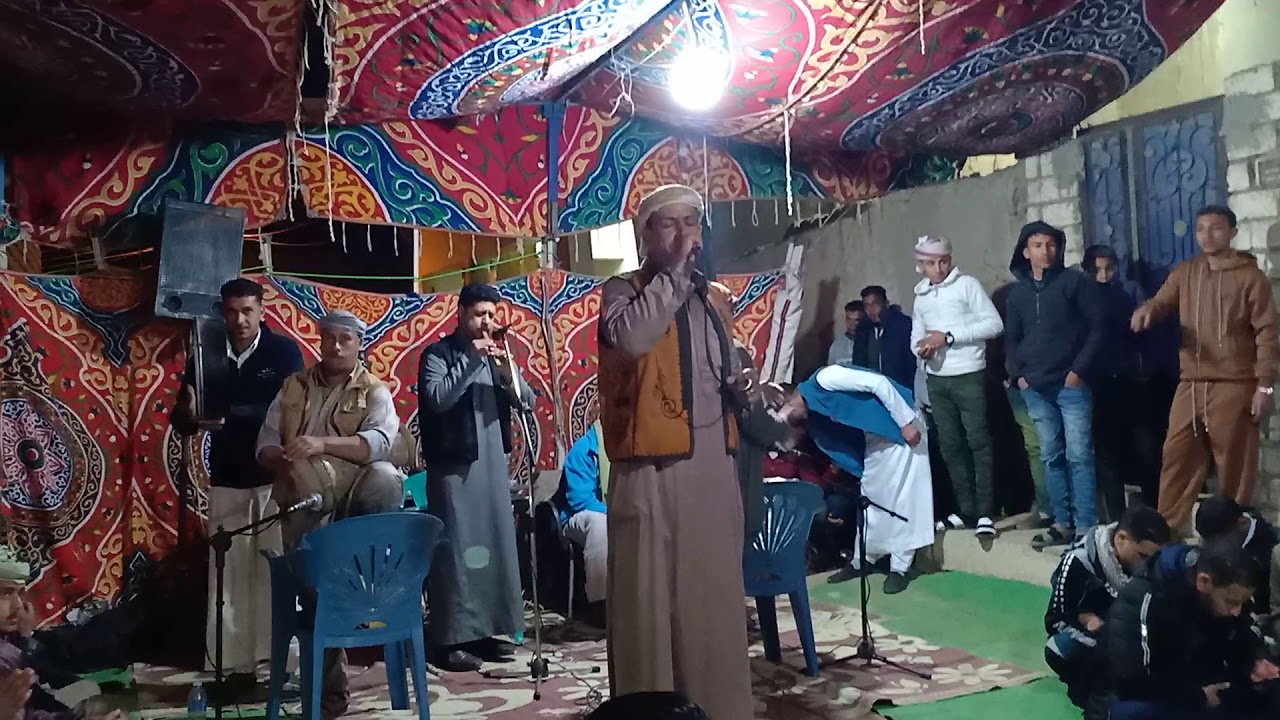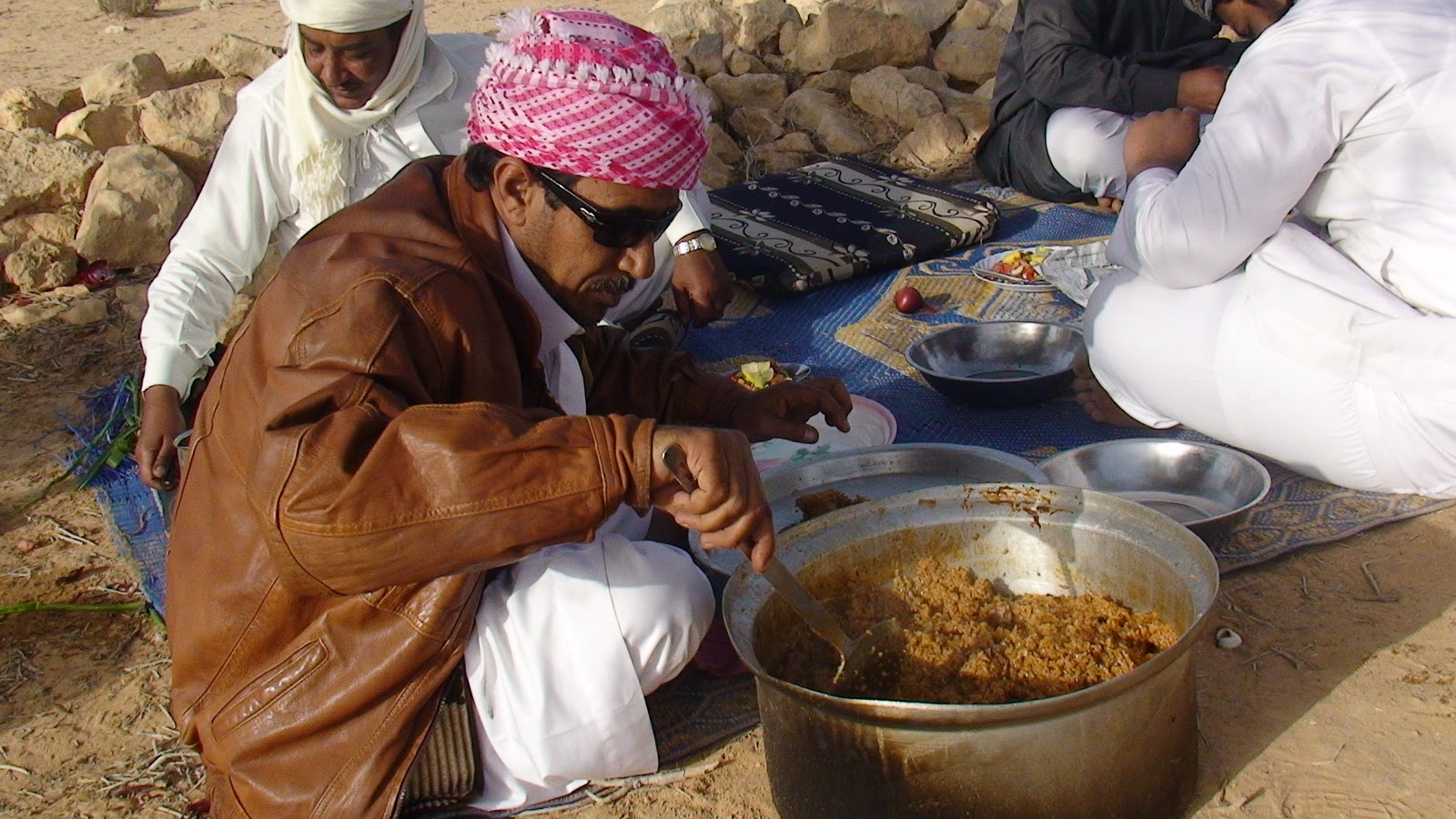Wedding and marriage customs
First the official visit of the groom's family with many gifts, especially food on the seventh day before the wedding. Dance and music in both houses until the eve of the wedding. Tonight the groom sends four women from his family to the bride's house with cloth of different colors and another white, necklaces, mirror, soap, towel, shoes and the wet henna on a plate. The four girls paint the hands and feet of the bride with the henna first and those who feel like it later. At dinner the girls or women return accompanied by the bride's relatives to paint the groom with henna. The mother of the bride or one of her aunts puts a coin in the groom's hand before putting the henna. From this time the groom should not leave the house until the bride arrives.
The next day the bride goes from her home on a donkey, a horse or more frequently a camel and two or three of her family accompany the bride on the canopy on the camel. When she arrives at the groom's house, a relative of the bride takes her and the other perfectly covers the bride's feet; if they look unlucky. Three women are waiting in the chamber with the groom. At this point the bride loses her virginity. One of her relatives of the bride wears a cloth with the bride's bloodstains. It is a symbol of the dignity of the bride's family.
So shouts of joy are heard. Neither of the couple leaves the house until the third day.
On the day of El-Solha, the third day the groom leaves from the morning to spend the whole day in the fields and at sunset he returns home with all the time fruit. On the same day, the bride's family takes all the bride's trousseau, including the cloth that the groom had given the night of the henna and they have to sew it on this day. At the time of leaving the father; His daughter, the girlfriend, stands up and kisses her head and hand, asking forgiveness for leaving the house. During the first seven days they send the couple food.
On the seventh day the groom celebrates a party at his house and also kisses his father's head and hand asking for forgiveness. The father blesses his son and gives him a gift which is generally a piece of land in the field or some palm trees.

 ESPAÑOL
ESPAÑOL ITALIANO
ITALIANO






